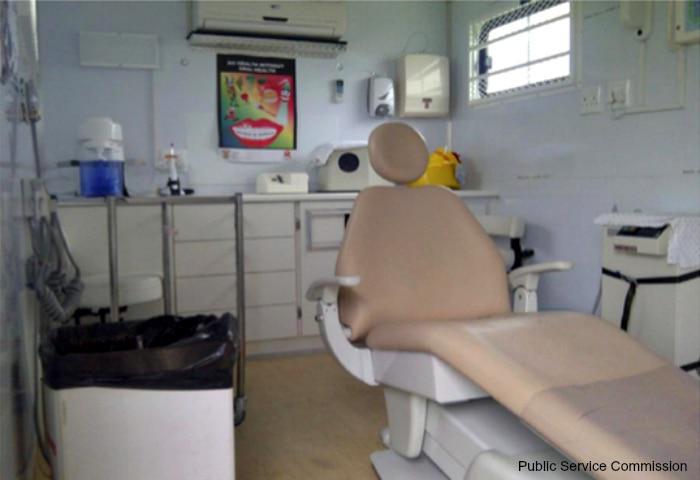Proposed policy could mean fewer patents, cheaper drugs

 South Africa currently grants almost every patent application it receives as it doesn’t have a patent review system. Easy patents for pharmaceutical companies mean South African patients pay up to eight times the price for some medicines as those in India or Brazil.
South Africa currently grants almost every patent application it receives as it doesn’t have a patent review system. Easy patents for pharmaceutical companies mean South African patients pay up to eight times the price for some medicines as those in India or Brazil.
A new policy proposal by the Department of Industry (dti) may change all that. The department’s draft national policy on intellectual property proposes introducing a stringent and transparent patent application process, and amends legislation to allow government more flexibility in procuring affordable medicines.
Without a review system, South Africa approves patents largely because companies have done the paperwork – not because the products they are patenting are new, or deserving of patent protection. With each patent granted, a company gains exclusive, 20-year rights to sell a product.
An easy patent application process means companies are able to extend initial patents in a process called “evergreening” based on superficial changes to drugs. Evergreening stifles competition and keeps drug prices high. It is also one of the reasons CEO of generic medicine distributor Pharma Dynamics Paul Anley has lauded the dti’s new draft policy.
“Greater scrutiny and examination of patent applications will eliminate weak patents designed to retain monopolies,” said Anley in a statement. “It appears that the general public will finally start reaping the fruits of a market free of patent manipulation.”
He added that evergreening had driven up the prices of drugs such as antiretrovirals, as well as treatments for heart problems, cancer and tuberculosis.
The draft policy also proposes mechanisms to allow the public to oppose patents before or after they have been granted, as well as relaxing import requirements that have prevented the South African government from sourcing cheaper drugs for the public sector through parallel importation. Parallel importation allows countries to buy from middlemen who may not be the original manufacturer or patent-holder, but who can offer them to developing countries at a lower price in the interest of public health.
The draft is only a first step in introducing these reforms, cautions University of KwaZulu-Natal professor and access to medicines expert Yousuf Vawda.
“The policy has its heart in the right place and is impressive with its unequivocal commitment to public health,” he told Health-e. “Having said that, there are serious issues – it’s poorly drafted, there are significant omissions, inconsistencies and even contradictions.”
To be effective, the policy will ultimately need to go further by making bolder commitments to compulsory licenses for medicines needed in the public sector, Vawda said. These types of licences allow countries with weak pharmaceutical manufacturing capacity to use a patent-protected invention without the patent-holder’s consent in the national interest. Patent holders are then compensated, usually in the form of a royalty.
Medicines Sans Frontières Access Officer Julia Hill agreed, saying that document would ultimately have to also establish patent criteria and infrastructure for patent review, including a searchable patent database. She added that the country also needs to more strongly advocate for local research needs, which may be especially important as the Department of Science and Technology grapples with local pharmaceutical production capacity.
“The policy doesn’t mention the inclusion of a research exemption which would allow South African researchers to bring in patented pharmaceuticals for the purpose of scientific research,” Hill told Health-e. “This is really important because a lot of drugs need to be tested and given in combination.”
The dti will accept public comment on the document until 4 October. According to the Treatment Action Campaign’s Lotti Rutter, the AIDS lobby will be holding its own public consultations during this period with the aim of producing a joint submission to the dti ahead of the deadline. – Health-e News Service.
Author
Republish this article
This work is licensed under a Creative Commons Attribution-NoDerivatives 4.0 International License.
Unless otherwise noted, you can republish our articles for free under a Creative Commons license. Here’s what you need to know:
You have to credit Health-e News. In the byline, we prefer “Author Name, Publication.” At the top of the text of your story, include a line that reads: “This story was originally published by Health-e News.” You must link the word “Health-e News” to the original URL of the story.
You must include all of the links from our story, including our newsletter sign up link.
If you use canonical metadata, please use the Health-e News URL. For more information about canonical metadata, click here.
You can’t edit our material, except to reflect relative changes in time, location and editorial style. (For example, “yesterday” can be changed to “last week”)
You have no rights to sell, license, syndicate, or otherwise represent yourself as the authorized owner of our material to any third parties. This means that you cannot actively publish or submit our work for syndication to third party platforms or apps like Apple News or Google News. Health-e News understands that publishers cannot fully control when certain third parties automatically summarise or crawl content from publishers’ own sites.
You can’t republish our material wholesale, or automatically; you need to select stories to be republished individually.
If you share republished stories on social media, we’d appreciate being tagged in your posts. You can find us on Twitter @HealthENews, Instagram @healthenews, and Facebook Health-e News Service.
You can grab HTML code for our stories easily. Click on the Creative Commons logo on our stories. You’ll find it with the other share buttons.
If you have any other questions, contact info@health-e.org.za.
Proposed policy could mean fewer patents, cheaper drugs
by lauralopez, Health-e News
September 10, 2013



